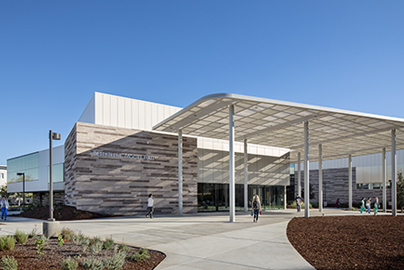Ethics and Compliance Week, Nov. 3 - 6
Highlights how integrity and accountability shape everything we do at UC Davis Health.

Throughout the week, we invite you to visit our interactive information tables at various UC Davis Health locations to score some swag, test your knowledge with our online quiz for a chance to win raffle prizes, and join our virtual Lunch and Learn sessions.
This year, we are excited to partner with departments across UC Davis Health, including:
- Clinical and Translational Science Center
- Disability Management Services
- Employee Well-being Benefits & Emotional Support
- UC Davis Health Cybersecurity
- Quality & Safety
- Regulatory & Government Affairs
- Risk Management
- UC Davis Police Department
- Workplace Violence Prevention Program
Whether you participate online or in person, there is something for everyone!
Find the full schedule and locations below.
-

Monday, Nov. 3
Folsom MCC
Room FMCC 1105
7:30 – 11:30 a.m. -

Tuesday, Nov. 4
Education Building
1st Floor, Lobby
8:30 – 11:30 a.m.Virtual Lunch and Learn: Risk Management
12 - 1:00 p.m.
An exploration of how understanding general risk, current safety trends, and the principles of CANDOR (Communication and Optimal Resolution) can help organizations proactively reduce lawsuits and enhance patient trust. By examining patterns in safety-related litigation, identifying emerging trends in risk management, and applying the CANDOR process, healthcare teams can shift from a reactive to a proactive approach in both patient care and legal exposure.
Recognize common sources of risk which contribute to litigation in healthcare, identify key safety trends, understand the CANDOR process and its role in improving transparency and trust following an adverse event, how to apply strategies that combine safety data, risk awareness and communication principles to reduce legal exposure and strengthen patient relationships. -

Wednesday, Nov. 5
North Addition
Room 1001
1:30 – 4:30 p.m. -

Thursday, Nov. 6
Betty Irene Moore SON
1st Floor, Lobby
10:30 a.m. – 1:30 p.m.Virtual Lunch and Learn: Workplace Violence Prevention Program
12 - 1:00 p.m.
The goal of this course is to raise awareness in the public healthcare industry of the documented and verified indicators that may indicate potential terrorist planning or other criminal acts. This is especially important due to the ability of public healthcare professionals to detect indicators of bioterrorism. The first half of the training aims to aid public healthcare workers in their ability to recognize suspicious behaviors with pre-incident terrorism activities and understand how and where to report them. The second half of this course presents four scenarios that detail the procedures and expectations of public healthcare professionals in reference to Suspicious Activity Reports (SAR).
